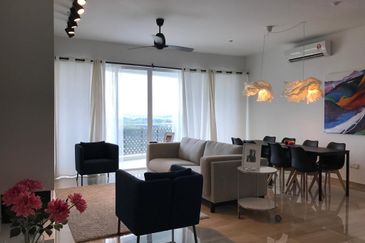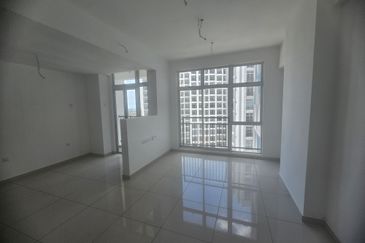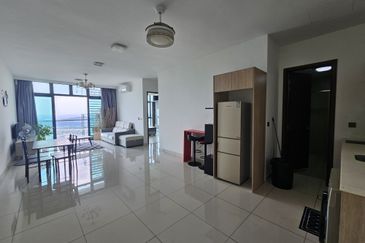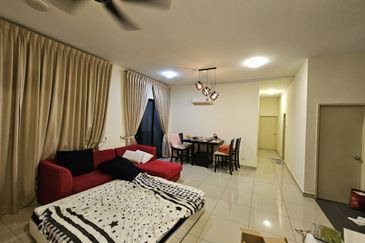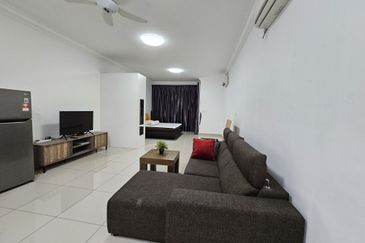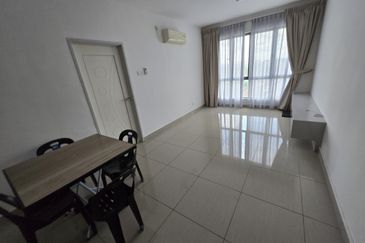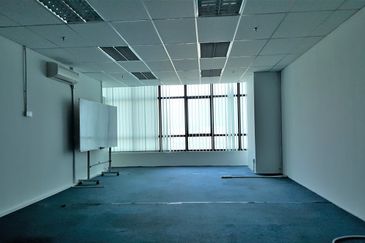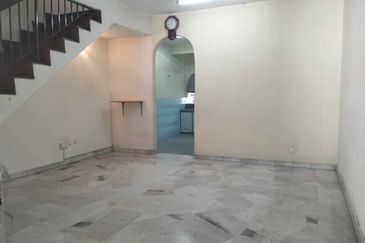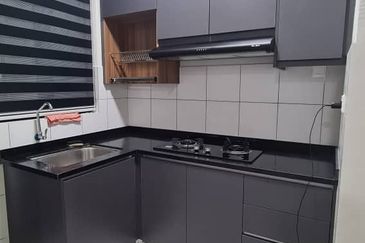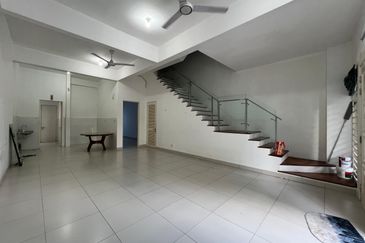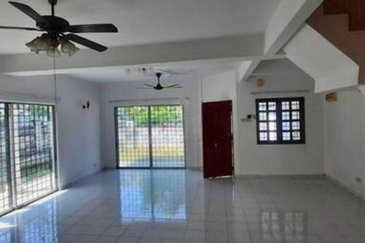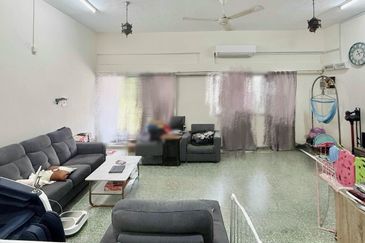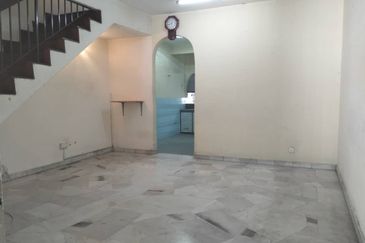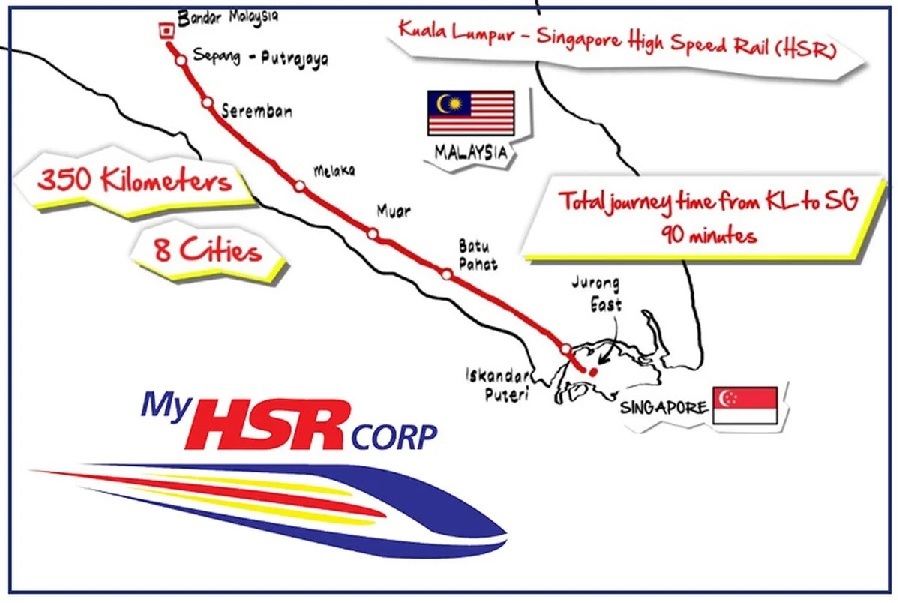
KUALA LUMPUR (Jan 9): A “critical matter” which led to the scrapping of the Kuala Lumpur-Singapore high-speed rail (HSR) was the matter of the AssetsCo, The Edge Malaysia reported in the cover story of its latest issue. This entity is mean to be jointly controlled by Malaysia and Singapore.
“This is very significant because it must be noted that while the HSR line would be 350km, only 15km of that would be in Singapore.
“Joint control of AssetsCo meant that Singapore would have equal say in everything, current and future, regarding the management of the HSR — 96% of which would be in Malaysian territory,” wrote the weekly.
“If in the future, Malaysia seeks to extend the HSR line to Penang, it would have to consult Singapore — or even need its agreement. It is also noteworthy that the AssetsCo model would incur additional costs as there would be another layer above the operating company, incurring significant costs,” it added.
MyHSR chairman Tan Sri Esa Mohamed explained in an interview with the business publication that the “AssetsCo is a private entity that is responsible for bringing all the equipment in for the HSR project. This includes the train itself, or we call it rolling stock.
“It also includes things like the trackworks, overhead power, catenary — these are high voltage power — as well as the communications and signalling systems. So, all this equipment is to be brought in from overseas, from either China, Japan or Europe. Some of these [works] can be done locally, especially track works, but it is up to AssetsCo to decide.”
Esa revealed that the Singapore side said that “by removing AssetsCo, to them it is a totally new project. Therefore, they don’t want to talk about it. It is not this project. We were hopeful that they would agree, but they didn’t”.
“They claim that by using AssetsCo, they want to have commonality in terms of management of the line and to appoint AssetsCo via an international tender. It doesn’t stop us from calling for an international tender of our own. But the point is that we want to structure it according to Malaysian requirements.
“We want to show and share as much as possible so that the understanding is there because we have been accused of not being transparent, while we were abiding by the law,” said Esa.
Describing the AssetsCo Esa said: It depends on how you look at it. It is very restrictive. You cannot change anything.
The Edge also wrote that “the AssetsCo structure would give Singapore a strategic role in Malaysia’s railway development because both countries would have equal say under the structure”.
Singapore also revealed that another change they could not agree to was that the current administration in Putrajaya wanted the HSR to be connected to the Kuala Lumpur International Airport, which was not part of the agreement when Datuk Seri Najib Razak was still prime minister.
“If Malaysia were to proceed on the project with Singapore, the HSR can never be connected to KLIA without Singapore agreeing to it. Malaysia would be indirectly giving up its sovereignty to develop its aviation industry and KLIA would not be able to grow.
“On the other hand, an HSR that takes people from Singapore to KL in 90 minutes would benefit Changi Airport at the expense of KLIA,” wrote the weekly.
Read the full report in this week’s The Edge Malaysia
Get the latest news @ www.EdgeProp.my
Subscribe to our Telegram channel for the latest stories and updates
TOP PICKS BY EDGEPROP
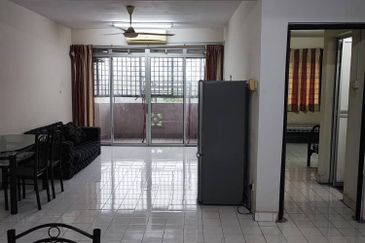
Apartment Tanjung Puteri Resort
Pasir Gudang, Johor

Bandar Baru Permas Jaya
Permas Jaya/Senibong, Johor

Sunway SPK Damansara
Sunway SPK Damansara, Kuala Lumpur

Bintang Fairlane Residences
Bukit Bintang, Kuala Lumpur
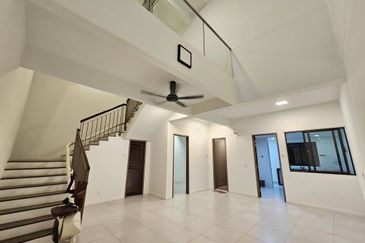
Sutera Heights, Taman Juara Jaya
Cheras, Selangor
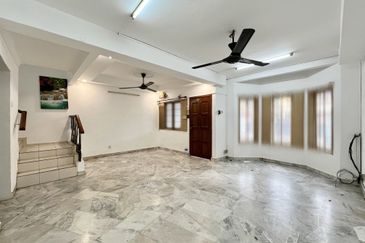
Taman Damai Indah, Cheras
Cheras South, Selangor

hero.jpg?GPem8xdIFjEDnmfAHjnS.4wbzvW8BrWw)
